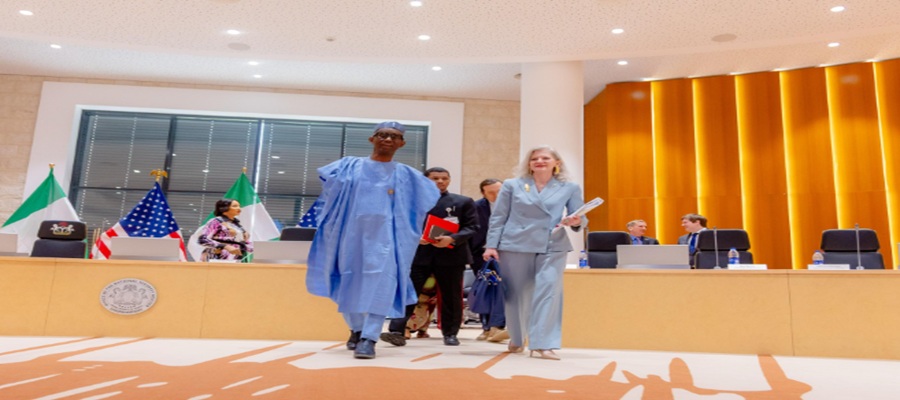General News
#ISurvivedEbola App Connects Survivors to Share Life-Saving Tips

#ISurvivedEbola, the groundbreaking West African multimedia campaign, has launched a new, interactive mobile app that allows Ebola survivors to connect with each other, share public health advice, and update the world on the challenges they still face during their post-recovery lives.
The innovative digital tool debuted in Guinea on January 5.
It is being piloted by the first Guinean survivor to share her story with the #ISurvivedEbola campaign.
The updates from the app appear on the newly launched #ISurvivedEbola website- http://www.isurvivedebola.org, which also houses the stories of a growing community of Ebola survivors from Liberia, Sierra Leone, and Guinea.
In the first-ever message sent via the mobile app, Camara “Fanta” Fantaoulen of Guinea stated in French, “Yes, I survived Ebola, thanks to the help of the brave healthcare workers who treated me. And I’ve learned that together, we can defeat this virus and protect our families and communities.”
After losing her father and five other family members to suspected or confirmed Ebola, Fanta believed her death was imminent when she tested positive for the virus.
Thanks to a combination of early treatment, strict adherence to her treatment plan, and sheer determination, Fanta recovered from the virus and is now providing psychosocial support to Ebola patients.
The mobile app is the latest component of the #ISurvivedEbola campaign, which leverages survivor stories from Liberia, Sierra Leone, and Guinea to deliver vital public health information about Ebola to affected populations, and to reduce the stigma faced by Ebola survivors.
A key way in which the campaign does this is by documenting survivor stories in video, audio, and print formats; then disseminating these stories broadly via local, national, and international media, online platforms, and other distribution channels.
Educational radio dramas that tell fictional yet reality-based stories of survival, and radio call-in shows that feature Ebola survivors as guests, are among the equally important campaign activities.
Funded by Paul G. Allen’s Vulcan Productions in response to the Ebola crisis in West Africa, #ISurvivedEbola is part of the #TackleEbola initiative (http://www.tackleebola.com) and the Paul G. Allen Family Foundation’s commitment of at least $100 million for Ebola relief.
The campaign is implemented by PCI Media Impact in collaboration with UNICEF.
Carole Tomko, general manager and creative Director of Vulcan Productions, states, “The mobile app really changes the face of this campaign by empowering the people of West Africa to share stories about Ebola and survivorship with each other and the world. The app gives a human face to survivorship and has the potential to create a sense of community in which the survivors, rather than being stigmatized, become leaders and heroes in this fight. The new digital components of the campaign extend our reach beyond West Africa, allowing these very moving, personal stories to be seen and heard globally.”
Currently, campaign staff in Liberia, Sierra Leone, and Guinea are providing each survivor who has shared his or her story through the campaign with a smartphone installed with the app, thereby enabling these individuals to use the technology to share information about their lives after recovery.
The smartphones and the app were provided and developed with support from the charity fundraising website GlobalGiving.
Campaign staff expect survivors in all three countries to begin utilizing the app within two weeks.
The mobile app updates will be shared globally on the newly launched #ISurvivedEbola website.
With the release of the app and launch of the website, the #ISurvivedEbola campaign has completed Phase I of its roll-out in Liberia, Sierra Leone, and Guinea.
With active distribution of campaign products across radio, print, digital, and video platforms in West Africa and beyond, the #ISurvivedEbola campaign is also continuing to add stories of hope and resilience to the world’s focus on the Ebola outbreak. These stories include two additional survivor story videos from survivors in Liberia and Sierra Leone, respectively.
The latest Liberia video introduces the world to Decontee Davis, a 23-year-old who overcame Ebola but lost her fiancé to the virus.
Decontee now works in an Interim Care Center for children who have come in contact with Ebola patients and are under 21 days of observation.
Many of these children have lost one or both parents to the disease.
In the new Sierra Leone video, audiences meet Aminata Kargbo, a university student who, after surviving Ebola, has arisen as a leader in efforts to educate her fellow countrymen and women on the benefits of early treatment.
“The campaign is really accelerating, especially in the three countries hardest hit by the Ebola outbreak,” said Sean Southey, CEO of PCI Media Impact.
“We began in early December with the launch of the campaign and release of the first survivor video (https://vimeo.com/113323185) out of Liberia. Then, the campaign launched educational Ebola-focused radio programs in Liberia and released the premier survivor story out of Sierra Leone (https://vimeo.com/115082561). Now, we have activated the mobile app, released the first survivor story out of Guinea, and launched a website that will allow concerned citizens throughout the world to join the movement.”
The multiple #ISurvivedEbola campaign products and activities are reinforcing the existing work being done by organizations like UNICEF in Liberia, Sierra Leone, and Guinea to spread key messages on Ebola to the public.
“While treatment of Ebola patients is critical, the best way to end the Ebola outbreak in West Africa is to cut the chain of transmission and prevent further infections,” said Rafael Obregon, Chief of the Communication for Development Section at UNICEF.
Obregon added, “As the global UN lead for the Social Mobilization Pillar of the Ebola response in West Africa, UNICEF is at the helm of efforts to stop transmission by working with national governments and partners to educate the public in Liberia, Sierra Leone, and Guinea about how to protect themselves, their families, and their communities from the virus. #ISurvivedEbola is reinforcing our efforts by providing this information in multiple, highly entertaining forms, including through the testimonies of actual survivors.”
General News
Nigeria Treats Religious Violence as Attack on State – NSA Ribadu

National Security Adviser Nuhu Ribadu has said the federal government considers religious violence an attack on the Nigerian state, stressing that the protection of all citizens, regardless of faith, is non-negotiable.

According to presidential spokesperson Bayo Onanuga, Ribadu made the remarks in Abuja at the close of a US–Nigeria Joint Working Group session.
“Nigeria is a deeply plural society, and the protection of all citizens, Christians, Muslims, and those of other beliefs, is non-negotiable,” Ribadu said.
“Violence framed along religious lines is treated as an attack on the Nigerian state itself.”
In a follow-up post on X, Ribadu said the joint working group has recorded “tangible operational gains” in the fight against terrorism.
The working group was set up following Nigeria’s designation as a Country of Particular Concern (CPC) by US President Donald Trump, a label that often triggers policy actions aimed at ending severe violations of religious freedom.
At the meeting, Ribadu led Nigeria’s delegation, which included representatives from 10 ministries and agencies, while the US delegation, made up of eight federal agencies, was led by Allison Hooker, US under-secretary of state.
Ribadu said Nigeria-US security cooperation has moved from dialogue to action, resulting in the disruption of terrorist networks and transnational criminal groups. He also praised the US for supplying drones, helicopters, platforms, spare parts, and other support systems over the past five years.
Speaking at the session, Hooker said the US was committed to expanding its partnership with Nigeria, particularly on deterring violence against Christian communities.
“Today, we are here to discuss how we can work together to deter violence against Christian communities, prioritising counter-terrorism, insecurity, investigation of attacks, and holding perpetrators accountable,” she said.
She added that efforts would focus on reducing killings, forced displacement, and abductions of Christians, especially in Nigeria’s north-central states
General News
PalmPay User Shares Experience on Fintech Apps to Trust in Nigeria

For many Nigerians, fintech apps are judged by one simple question: Can I trust the platform? For Happiness, a young Nigerian entrepreneur, the answer manifested in the most defining moments of her life.

Trust Built Through Everyday Use
In 2025, Happiness relied on PalmPay to run her business, from receiving customer payments, paying vendors, and managing daily transactions. During PalmPay’s Hustle Grant Campaign, she joined thousands of small business owners hoping to win the N500,000 funding.
While she didn’t make the shortlist, the campaign gave her business something just as valuable: visibility. New customers discovered her brand, enquiries increased, and sales followed.
PalmPay didn’t just host a campaign; it created an ecosystem where small businesses could be seen and supported.
Just days later, Happiness’ life changed. On August 30, 2025, she lost her father. With this loss came challenges, especially payments. They tried transferring money through regular banks but were met with declined transactions. Happiness suggested using her PalmPay account and it was successful.
In a moment defined by loss and urgency, PalmPay cut through the chaos, proving that reliability isn’t a feature, it’s a lifeline. Happiness’ relationship with PalmPay didn’t stop at transactions. Through other management tools on the app, she learned to build discipline around her finances.
More Than an App, a Financial Partner
Beyond transactions, PalmPay’s tools helped Happiness build better money habits and financial discipline. Today, the brand continues to reward reliability through initiatives like its ongoing Premier Cool campaign, reinforcing a simple message: consistency should come with value.
The idea is simple: Purchase a bar of soap and stand a chance to get ₦10,000cash and other cash benefits.
It’s PalmPay’s way of saying that smart money habits deserve real value in return.
Why PalmPay Earns Trust
Life doesn’t give warnings before it tests you. When it does, you need a platform that doesn’t just usually work but always works.
For many users, PalmPay proves to be more than a payment app. It is a trusted partner powering ambitions, supporting users through defining life moments, while helping them bank smartly.
When it mattered most, PalmPay worked. To watch the full testimonial visit: @palmpayapp_ng
General News
Nigerians Target Self-Improvement, Business Startups in 2026 Google Data

Google Search data from the first two weeks of 2026 reveals Nigerians are prioritising ambition, self-growth, and entrepreneurial ventures as they embrace the new year with renewed drive for personal and professional excellence.

The data shows a 40 per cent spike in searches related to self-improvement and “becoming better”, reflecting a nationwide shift from mere resolutions to actionable plans across boardrooms, classrooms, and homes. Entrepreneurship leads the charge, with “how to start a business” topping “how to start” queries after an 80 per cent surge, alongside rising interest in blogging, podcasting, and YouTube channels to foster economic opportunities.
Personal development dominates, as searches for “how to be a better person” rose 20 per cent, extending to relationships with queries on becoming better lovers, partners, husbands, wives, and listeners. Health resolutions gain traction, with 40 per cent increases in “how to eat healthy”, “healthy diet”, and “how to meditate” underscoring commitments to physical vitality and mental wellness.
Skill mastery captivates diverse audiences, from “how to improve English” and communication skills to enhancing memory, credit scores, and even handwriting, while leisure pursuits spike in “how to get better at” chess, singing, running, Fortnite, and soccer. Top searches include “how to improve communication skills”, “how to be a better listener”, and entrepreneurial starters like “how to start a podcast”, painting a portrait of a nation honing edges for success.
Taiwo Kola-Ogunlade, Communications and Public Affairs Manager for West Africa at Google, described the trends as a “powerful reflection of Nigeria’s collective ambition”, affirming the company’s dedication to tools like Search and Gemini for guiding Nigerians toward prosperity

 E-Financial3 days ago
E-Financial3 days agoZenith Bank Gets Regulatory Approval for Full Takeover of Paramount Bank

 Telecom3 days ago
Telecom3 days agoNew Investment Fund Targets Acceleration of Emerging Technology in Nigeria

 E-Business3 days ago
E-Business3 days agoFirm Detected a Fivefold Surge in QR Code Phishing Attacks in the Second Half of 2025

 News3 days ago
News3 days agoNITDA Commits to Digital Inclusion for Persons with Disabilities

 General News2 days ago
General News2 days agoPalmPay User Shares Experience on Fintech Apps to Trust in Nigeria

 News2 days ago
News2 days agoStakeholders Demand Stronger Governance and Infrastructure to Drive Tech Adoption @ Lagos AI Summit

 General News2 days ago
General News2 days agoNigerians Target Self-Improvement, Business Startups in 2026 Google Data

 General News2 days ago
General News2 days agoHow Inside Jobs and Policy Shocks Trigger Nigeria’s Rising Loan Crisis














